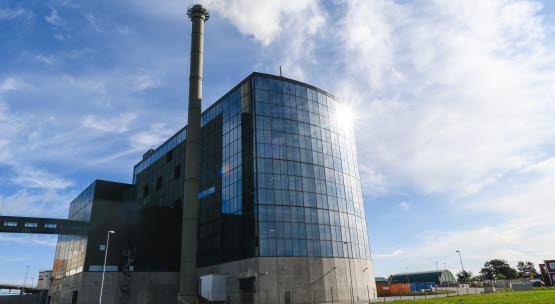From Waste to Wealth - Sweden's comprehensive approach to Energy Recovery
In today's quest for sustainable energy, recovering energy from waste has become a key innovation and environmental solution. Leading the way, Sweden excels with its pioneering efforts and comprehensive strategies.

Foto: Tekniska verken/Christian Ekstrand
The 2024 Beacon Conference on Waste-to-Energy took place in Stockholm and highlighted the pivotal role of Waste-to-Energy (WtE) in circular waste management. The conference was organized by International Solid Waste Association (ISWA) and Swedish Waste Management - Avfall Sverige, in partnership with the Swedish Energy Agency.
The event featured expert discussions on directives, strategies, and technological advancements aimed at achieving climate neutrality and operational efficiency. Key topics included emission control, carbon capture, and the recovery of valuable materials.
The conference underscored Sweden's leadership in WtE technology and its integration with district heating. Participants from various countries emphasized the global importance of WtE in sustainable waste management. The event also stressed the need for better communication and higher circularity in the waste hierarchy.
– Waste-to-Energy is not in conflict with reuse and recycling. It should not replace recycling but is essential for handling non-recyclable waste, including hazardous and low-quality materials. The industry must improve communication on the necessity of incineration while also striving higher in the waste hierarchy to unlock circularity potential, says Tony Clark, CEO of Avfall Sverige.
Sweden's leadership in WtE Technology
Energy recovery from waste has become a crucial aspect of sustainable waste management, with significant advancements in recent years. This process involves converting waste materials into usable energy, typically through methods like incineration, anaerobic digestion, and gasification. These technologies not only reduce the volume of waste sent to landfills but also generate electricity and heat, contributing to a circular economy.
Sweden has been a pioneer in this field, demonstrating progress and innovation. Sweden's energy system is unique due to its heavy reliance on renewable sources like wind and hydropower, with a well-developed Combined Heat and Power (CHP) system.
– In Sweden, 98 percent of municipalities have implemented some form of Combined Heat and Power (CHP) or District Heating. Since the 1990s, the sector has transitioned from fossil fuels to biomass and waste. Waste-to-Energy is set to become even more crucial as competition for fuels, particularly biofuels, intensifies. This is especially significant from a local and regional perspective, providing both heat and electricity through CHP. Additionally, Waste-to-Energy is vital for preparedness, offering reliable storage and delivery regardless of weather conditions, and ensuring sufficient cogeneration during cold periods, says Gustav Ebenå, Department Head at the Swedish Energy Agency.
One of the key drivers of Sweden's success in waste-to-energy (WtE) is its comprehensive approach to waste management. Sweden has implemented policies that promote the use of waste as a resource, including the Extended Plastic Responsibility proposal. This policy aims to ensure that producers and importers of plastic are financially responsible for the carbon emissions associated with their products1. The revenue generated from this tax would fund measures to prevent these emissions from entering the atmosphere, thereby encouraging recycling and reducing the reliance on incineration.
Strong commitment to Bio-CCS
Sweden's commitment to carbon capture and storage (CCS) further underscores its leadership in this area. By integrating bio-CCS, Sweden aims to achieve negative emissions, which is particularly appealing to policymakers as it minimizes the need for disruptive regulations. Additionally, Sweden is exploring the potential of hydrogen as a renewable energy source, which could play a significant role in the future energy landscape.
Overall, Sweden's holistic and forward-thinking approach to energy recovery from waste serves as a model for other countries. By leveraging innovative technologies and implementing robust policies, Sweden continues to drive progress in creating a sustainable and resilient energy system.
– Sweden excels in energy recovery from waste with a total of 19,5 TWh per year that meets the heating needs of more than 1 470 000 apartments and the electricity needs of more than 940 000 apartments. This success sparks international interest. Many are keen to learn about our pioneering policies, the integration with district heating, and to connect with Swedish technology providers who are leading advancements in this area, says Sofie Fjellgren, Business Developer, International Markets, at the Swedish Energy Agency.


